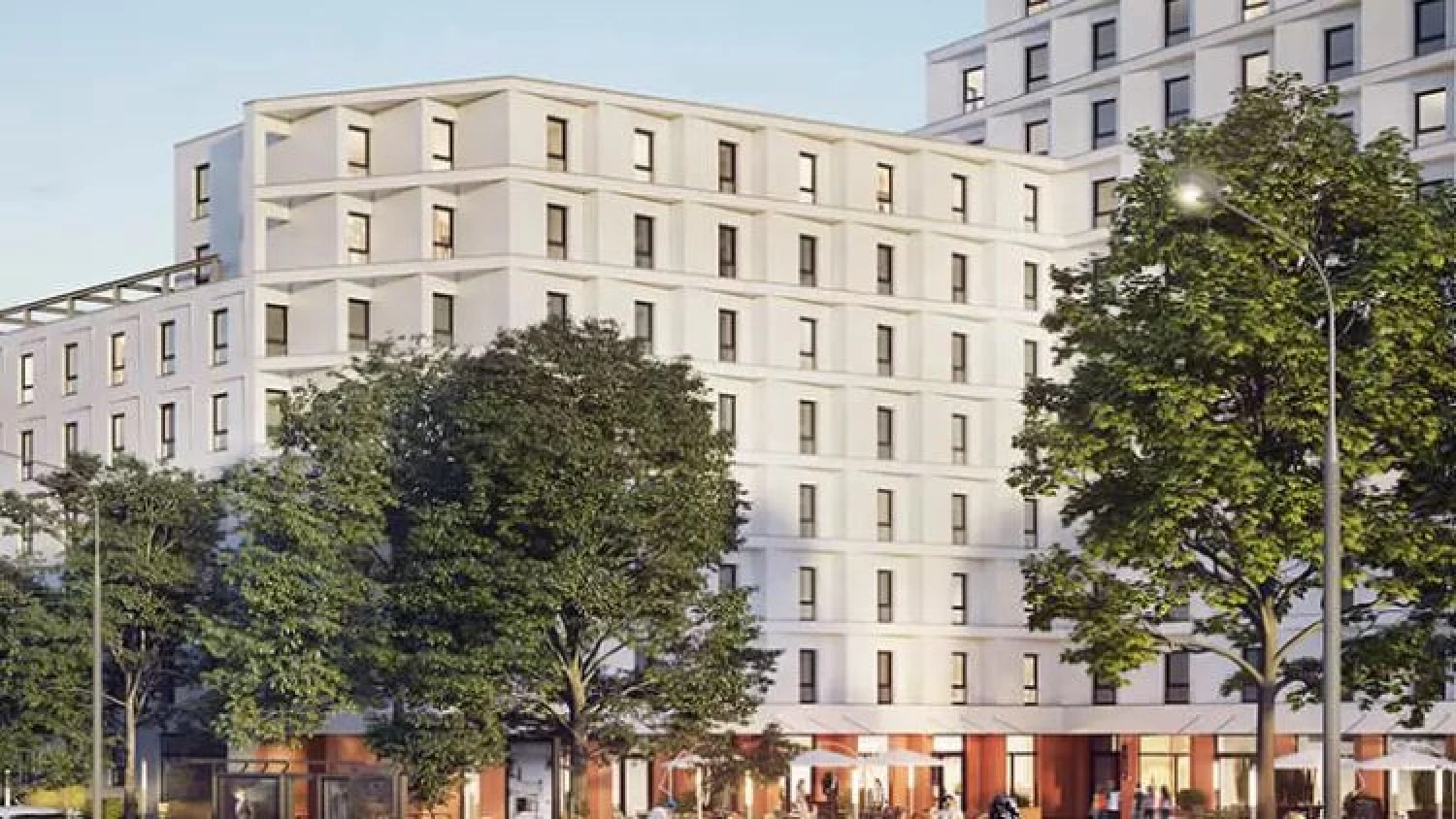
Cushman & Wakefield has released a new report on the student housing market in Poland. Supply of public and private halls of residence fails to keep pace with growing demand. In addition, halls of residence remain very popular among students in Poland despite rising rental rates, which in turn is making the PBSA (Purpose-Built Student Accommodation) sector attractive to international investors.
According to Statistics Poland (GUS), Poland has 359 universities, with the student population in the previous academic year reaching over 1.2 million, including more than 105,000 foreigners. One of key challenges facing students in Polish cities is undoubtedly the small number of beds in university-owned halls of residence. Cushman & Wakefield data reveals that there are only 444 public schemes in the country offering 115,300 beds.
"There is a clear shortage of beds in halls of residence throughout Poland. Cushman & Wakefield estimates that only 9% of students can be accommodated in university-owned schemes. Conversely, although modern private facilities have doubled their offer in the last 10 years, they can accommodate only 1% of students in Poland", comments Karolina Furmańska, Living Sector Expert, Cushman & Wakefield.
Most halls of residence are obsolete and only a few have been fully refurbished or upgraded over the last decades. In addition, a number of criteria regarding a domicile, studying at a given university and even an affluence level must be met to qualify for a bed in a public scheme. Having no choice, most students are looking for accommodation in the housing market. Due to rising rental rates, renting a studio or a bigger self-contained flat in a large city is not a cheap option and makes it harder for you to actively participate in the life of an academic community - an indisputable advantage of dormitories. Foreigners find it particularly challenging to find a rental apartment and sign a lease - frequently offered exclusively in the Polish language. As a result, students are turning their focus to private halls of residence.
"According to Cushman & Wakefield’s data, there are more than 11,500 beds in private halls of residence in Poland and another 6,000 in the pipeline. Private student accommodation in Poland is not as popular as, for example, in the US, the UK and Germany, but this market is growing at a rapid pace and attracting growing investor interest. In 2023, beds in the UK’s private halls of residence accounted for over 60% of all beds in student accommodation schemes. The number of beds is growing on average by nearly 4% annually, but there is still a shortage of around 370,000 beds. The PBSA sector is also growing at pace in other parts of Europe", adds Karolina Furmańska.
Rents on an upward trajectory
Compared with 2020, monthly rents for shared student accommodation units in public halls of residence have risen by approximately 12%, while for single rooms the increase was around 40%. Current fees range from PLN 280 to PLN 1,650 monthly, depending on the number of beds in a room and its standard.
The most affordable monthly rate for a two-bedroom (without a private bathroom) in a public hall can be found in Łódź for PLN 320 per month, while the highest rate for a similar room is in one of Warsaw’s halls of residence, where it is priced at PLN 900.
"With an average monthly rent of PLN 590, Łódź is the most budget-friendly city for students. Conversely, Wrocław is the most expensive city, where rents average PLN 810 per month. Poznań boasts the most extensive range of rents for a self-contained unit in a public hall of residence across Poland, varying from PLN 610 to PLN 1,650", adds Tatiana Murwajowa, Junior Investment Consultant, Cushman & Wakefield.
And what if no beds are available or a student is not eligible for a university-owned hall of residence? According to data from Otodom Analytics, the availability of rental apartments is steadily rising and in September it returned to the level seen before the outbreak of the war in Ukraine, but finding an attractive offer can still be challenging.
"Tenant activity and advert rotation levels remain very high and are even higher than they were before the war. Tenants who last year in a way had no choice due to a very limited number of offers and rising rental rates are now looking for better quality flats and attractive rents in particular. Of course, they cannot expect rents to start falling suddenly given the continual growth in service charges. They can, however, expect that an increase in supply, including more intense competition, will make landlords more willing to make concessions during rent negotiations. This, however, still means bargain hunting rather than a return of a tenant-friendly market as the lifetime of an advertisement on our website is not getting longer despite a marked increase in supply", comments Ewa Tęczak, Real Estate Market Expert, Otodom.
According to Otodom, rental growth for the third quarter of 2023 averaged 10% year-on-year while the median time for an advert being active fell from 25 days in the second quarter of 2023 to 22 days.
It should also be remembered that the cost of service fees and utilities should be added to the rental rates for apartments for rent. In such circumstances, a room or a bed in a private student accommodation scheme may be an ideal solution - provided a place can be found and it is affordable. It is, however, worth emphasising that rents in PBSA projects remain attractive in comparison with rental apartments (especially when you consider all rental fees such as electricity, gas and water charges for renting an apartment while dormitory fees are often quoted as all-in charges). In very few cases, additional fees must be paid which typically range from PLN 200 to PLN 300 per month. Rents apart from the room itself cover security services, internet access and such amenities as fitness rooms, launderettes and modern spaces for learning and relaxation.
According to Cushman & Wakefield’s report, the most affordable cities for private student accommodation are Lublin and Łódź with average monthly rents of PLN 1,646 and PLN 1,832 respectively. The most expensive city, as in the case of public halls of residence, is Wrocław, with an average monthly rent of PLN 2,542. The most costly accommodation can be found in Krakow, with single rooms for over PLN 4,000 per month.
"Data from Cushman & Wakefield shows that rents for both private and public student accommodation have risen by 44-47% over the past three years. This year alone, rents for single and shared rooms have increased by 17% and 19% respectively. Rental rates, however, usually cover all utility and electricity charges which have gone up the most over the year", comments Karolina Furmańska.
Łódź stands out with the most significant surge in rents - noting a 29% year-on-year increase in rental rates per bed in a private hall of residence. Other cities experiencing a notable price increase are Poznań (23% y/y), Kraków (22% y/y), Gdańsk (21% y/y), Lublin and Wrocław (20% y/y each). Conversely, Warsaw saw an average increase of 11%, while Katowice was the only city with stable rental rates.
"With the growing popularity of private PBSA, this market has become an attractive investment target for both private investors and large companies. We are seeing an increasing willingness of investment funds to allocate capital to this sector, with investment activity gaining momentum both in Poland and in other European countries. Publicly announced PBSA projects are expected to deliver more than 6,000 beds in the next two to four years. Another few thousand beds are likely to come onto the market in the next five years, but remain a business secret for now", concludes Karolina Furmańska.



